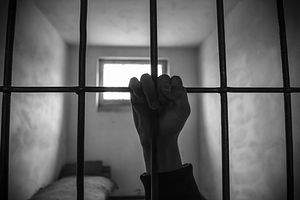Last Wednesday, Vũ Minh Khánh, the wife of jailed human rights lawyer Nguyễn Văn Đài, slipped quietly backed into Vietnam after completing an advocacy tour of the U.S., Europe and Australia raising awareness of her husband’s imprisonment, and was promptly arrested at Hanoi airport.
The Vietnamese government does not take lightly efforts by citizens to raise awareness of the country’s troubling human rights record abroad. Khánh, whose husband was arrested in December 2015 as he made his to a meeting with European Union representatives to discuss this very topic, understands this very well.
And yet she took the brave decision to go abroad to raise awareness of her husband’s plight. During the tour, Khánh said that she is not an activist but was compelled to action by a lack of faith in Vietnam’s justice system and out of fear that Đài will be sentenced to 20 years in prison if convicted on the charges of “conducting propaganda against the state” that have been leveled against him.
Khánh was held in the airport for hours of questioning before being released late at night. In the intervening hours, a small group of friends and activists who had gathered outside the airport to welcome her return were given no information about her whereabouts.
This is by no means rare. When she spoke about her husband’s treatment during her advocacy tour, Khánh described how she had had no sight nor sound of him since the day he was arrested. She explained that although he suffers from hepatitis B, she has no way of knowing whether he needs treatment and, if so, whether the authorities are providing it. Indeed, while she believes Đài is being held in the B14 detention center in Ha Noi, she says she cannot be sure of this given the authorities’ track record for moving prisoners of conscience between different detention facilities.
Đài’s case highlights entrenched practices in Vietnam in cases involving of prisoners of conscience – men and women who have been imprisoned for their beliefs and/or peaceful activism. By Amnesty International’s count, there are currently at least 84 prisoners of conscience in the country, the highest number in any country in Southeast Asia.
On Wednesday, Amnesty International will publish a report to highlight the treatment of prisoners of conscience in Vietnam. The report is written on the basis of a series of lengthy interviews with former prisoners of conscience, all of whom were released in the last five years, and casts a rare light inside the country’s hermetically sealed prisons and detention centers.
The report details a pattern of torture and ill-treatment in cases of prisoners of conscience which includes enforced disappearances; prolonged periods of incommunicado detention and solitary confinement; the infliction of severe physical pain and suffering; the denial of medical treatment; and punitive transfers that take prisoners of conscience from prison to prison throughout the country, cutting them off from their families and support networks.
The objective of these practices is straightforward – to compel prisoners of conscience to “admit” to the accusations against them and to punish them for their activism, both in the outside world and in the prisons themselves. Interviewees told Amnesty International how they were beaten, electrocuted and, in one case, burnt by police and prison staff, and how they spent months on end in solitary confinement, in total darkness and complete silence.
One interviewee told Amnesty International how she ended up in a prison 2,000km from her family home. Another described laying incapacitated for two and a half years in a prison’s so-called “health clinic” without medical treatment as one-by-one 11 other prisoners who were suffering from HIV/AIDS died around her for want of medical treatment.
Our report is based on testimony of events that took place before ratification but it also sets out information pertaining to the country’s 84 current prisoners of conscience, some of whom are known or believed to be enduring these same practices.
While Vietnam’s ratification in 2015 of the UN Convention against Torture is a welcome step, cases like Đài’s underscore how much needs to be done if ending torture in the country is ever likely to become a reality.
John Coughlan is Amnesty International’s researcher on Vietnam, Cambodia and Laos.

































